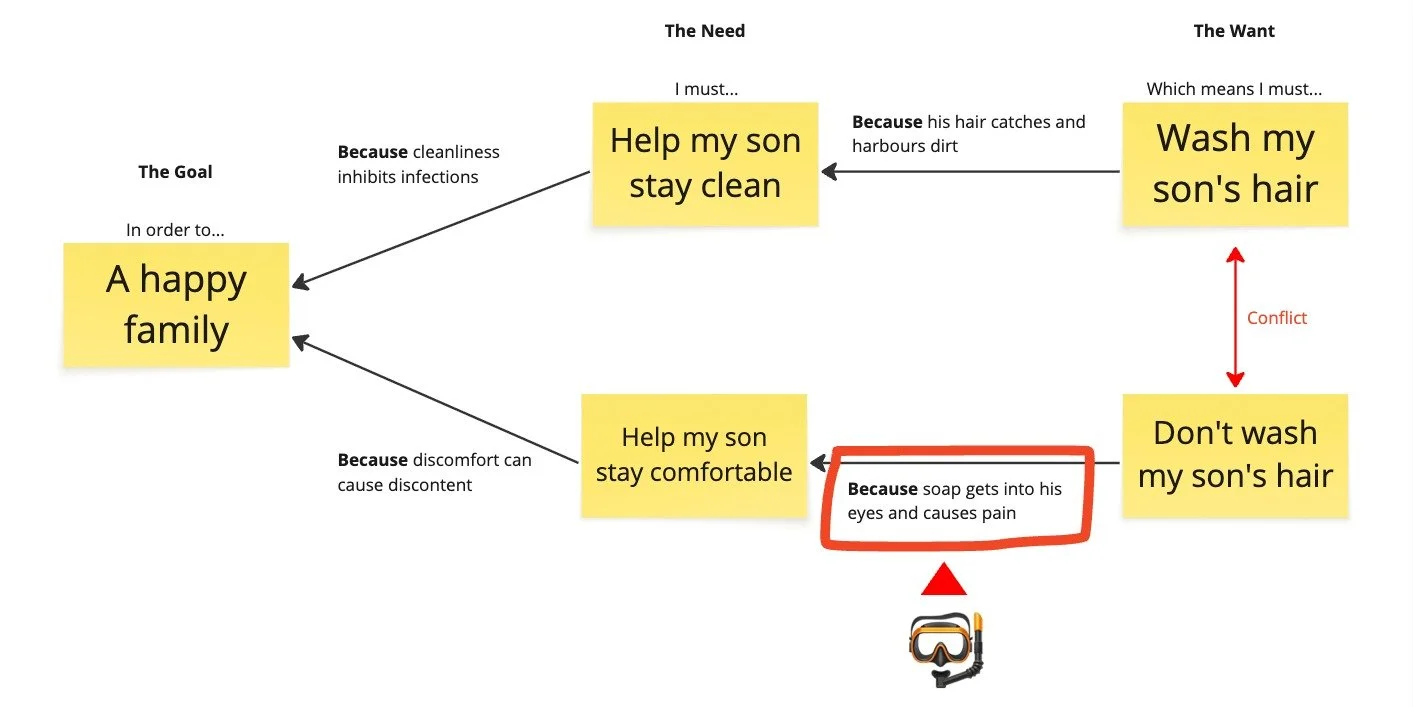Scrub Assumptions, Clear Conflicts
Bath time taught me about conflicts.
“Dad! Stop it!”, spluttered my son as soapy water dribbled down his face.
“Keep your eyes closed, your hair needs a wash - I can see a leaf in there!”
“No, it hurts! Stop!”, repeated my son.
An hour later, as my son sat swaddled in a warm towel, we both stared at a piece of paper. The top of the paper read: “The problem with washing hair”.
I wrote my son’s complaint: “Soap in eyes”, and my complaint: “Dirty hair”.
Underneath, I wrote: “Solutions”. We looked at each other.
“I guess you could wait for it to rain, stand outside, and get clean that way.” I joked, writing my suggestion down.
My son got into the swing of things. “I could be a cat! They never have to take baths.” I wrote it down.
I suggested that he could rinse himself off using the shower-head. My son countered with the suggestion that I take him to a pool, because he doesn’t mind water on his face at a pool.
“Wait. Why don’t you mind getting water in your face at a pool?”
“Because I wear goggles in the pool”, my son clarified.
“Oh. What if we got goggles for the bathtub?” I wrote it down.
We looked over our list of solutions. All the ideas were crossed out as being unrealistic or unpleasant, except for the goggles. Soon, all hair washing was done with goggles.
Something in my head clicked.
In organisations and in families, we usually share the same overarching goal. Any conflicts are therefore due to differing ideas on how to reach that goal.
The shared goal provides the necessary foundation for problem-solving together, where our focus becomes identifying invalid assumptions on either side of the conflict, or assumptions that can be invalidated by injecting a new condition (such as wearing swimming goggles - see red arrow).
Suggests Faber and King: “Problem-solving doesn’t always have to be a laborious, time-consuming, multistep activity. Sometimes it’s a simple shift in perspective. Instead of thinking, ‘How can I control this person?’ we can think of them as being on the same team, and invite their help and participation.”
Continues Kohn: “Hundreds of studies have shown that students think more deeply when they can pool their resources, put their heads together, and jointly devise problem-solving strategies. They also learn to care about other people.”
The takeaway? Leave the dirt behind and create win-win solutions with collective problem solving.
Note: This article draws heavily on Faber and King’s How To Talk So Little Kids Will Listen, and Kohn’s Unconditional Parenting. Quotes adapted for brevity.
